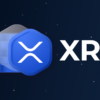O representante Tom Emmer (R-MN) está preparando uma legislação sobre stablecoins produtoras de dividendos, apurou o The Block.
Um rascunho de discussão de um projeto de lei obtido pelo The Block permitiria que “stablecoins que incluem um componente de dividendos” fossem registrados na Securities and Exchange Commission.
Mais especificamente, esse termo significa: “uma stablecoin que distribui toda ou parte da receita obtida com o investimento dos ativos que sustentam a stablecoin para os detentores da stablecoin”. É entendimento do The Block que essa definição está em fluxo dentro do processo de elaboração do projeto de lei.
A SEC teria, de acordo com a linguagem do projeto de lei, que reunir e emitir novas regras para seu regime de supervisão e exame sobre essas stablecoins. Isso incluiria requisitos para os tipos de ativos que respaldam essas stablecoins e sua guarda.
Critically, the version of the bill seen by The Block would not make SEC oversight mandatory for even dividend-producing stablecoins. Given that most yield available to stablecoin holders comes via third-party lending or staking platforms, it’s not entirely clear how many would even fit in such a regime.
As a possible example, TerraUSD (UST) holders can earn 20% returns on Anchor, which is operated by the same team as Terra but the tokens themselves aren’t exactly distributing investments. Meanwhile, Ampleforth (AMPL) is an algorithmic stablecoin that does something similar to a stock split but does not have backing assets. But the proposed regime would not seem to apply to several of the largest stablecoins by market cap — USDT, USDC or BUSD, for example.
Members of Emmer’s staff did not respond to The Block’s requests for comment on the status of the draft bill.
The prospect of stablecoin regulation has been a top priority for crypto-focused legislation recently. The Biden administration’s financial regulators have been pushing to limit asset-backed stablecoin issuance to bank-like institutions.
Republicans like Emmer are generally fond of more open-ended frameworks, including options for registrations with different regulators. Critics say that optional registration leaves regulators no tools to pursue bad actors.
















































